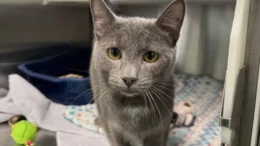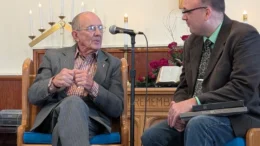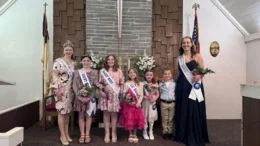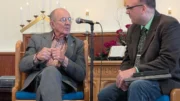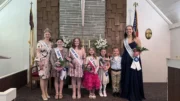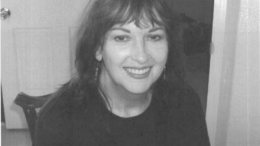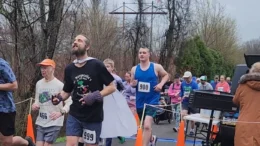According to the Rape, Abuse & Incest National Network (RAINN), someone is sexually assaulted on average every 98 seconds. And every eight minutes the victim is a child. And yet only 6 in 1,000 are ever convicted of committing sexual assault.
It is numbers like these that are the reason April has been designated national Sexual Violence Awareness month.
I was looking up information today for some background for an assignment I had tonight. I was covering a self-defense class at the local YMCA put on by the local sheriff’s department and the PPC Violence Free Network, which runs advocacy programs, a hotline, a shelter and support for victims of violence in Venango County. The statistics are frightening and yet they are supposedly better than they were 20 years ago, largely based on these programs spreading awareness and education.
Only 6 in a 1,000 are ever convicted!
Let that sink in.

Locally in Venango County, about 50 sexual assaults were reported to police from July 2014 to June 2015, according to the PPC Violence Free Network. The number rose in 2015-16 to 63.
But RAINN claims 68 percent of sexual assaults each year go unreported to police, bringing the county’s estimated total during that period to 152 in 2015 and over 180 in 2016.
In the last year, PPC has provided services to 230 survivors of sexual assault.
These numbers aren’t numbers remember. These are people that get represented dryly by numbers when we have to write stories to explain the problem.
Think about it this way. If you have 20 friends, statistically speaking, 5 of them could have been sexually assaulted. And remember 68 percent of the people won’t ever tell you about it.
I remember having conversations with friends who talked about talking with their grandmothers and were shocked at some of the stories they heard. Sexual assault was something they either accepted or found a way to tuck away.
Think about that too for a second. Remember, the statistics above are better than they were 20 years ago.
So what do we do about it?
One thing I hear over and over again covering this issue is it is never the victims fault. The only time it is okay to touch another human being is if they give consent.
Say that over and over again.
The only time it is okay to touch another human being is if they give consent.
Learning how to protect yourself is something we all should learn how to do. In this class the sheriff’s deputies not only show you how to take advantage of vulnerable parts of the body, but also how to potentially avoid an attacker by being aware of another’s body language and general demeanor.
Emphasizing self-defense might not be pretty, but knowing how to render an attacker defenseless or at least compromise their ability to attack is potentially crucial to your survival. They show some seemingly common sense things and some not so common sense things that happen during an attack and your ability to think quickly and react the best way to prevent further injury and to hopefully get away.
Really good stuff to learn and to practice over and over again.

PPC is hosting several awareness events and self-defense classes this month.
Another self-defense class will be held April 29, 11 a.m. to 1 p.m., at the Franklin YMCA aerobic studio. Registration will begin 30 minutes before class. The classes are free and open to the public, and participants must be 18 years old or accompanied by an adult if under 18.
The PPC Network’s annual Walk a Mile in Her Shoes event is set for April 23 in Franklin’s Fountain Park.
Male participants will don high heels to raise awareness about rape, sexual assault and gender violence. Registration begins that day at 2 p.m. There will be speakers at 3 p.m. and the march will follow. Registration cost is $15 and teams of five or more are $12 each.
More information about any of the events is available by calling (814) 676-5476.
In addition to these events, PPC provides services to victims of sexual violence, such as counciling, first responses to hospitals and police stations, advocacy and emergency shelter. They also maintain a 24 hour hotline at (800) 243-4944. Hotlines are safe and confidential, and calls are routed only by the first six numbers of the phone number. Responders only report calls if consent is given or if it is legally obligated, such as when a child is involved.
More information about PPC can be found at fscas.org/ppc or at the 24-hour hotline at (800) 243-4944 or (814) 677-7273. National Sexual Assault Hotline is(Caller will be connected to a local crisis center) (800) 656-4673.
Preventing sexual assault
The RAINN network says everyone can play a role in helping to prevent sexual assault. The steps to “bystander intervention” can be remembered by the acronym CARE:
C – Create a distraction. Do what you can to interrupt the situation.
A – Ask directly. Talk directly to the person who may be in trouble.
R – Refer to an authority. Intervene a potentially dangerous situation with an authority figure like a police officer.
E – Enlist others. Never approach a dangerous situation alone. Bring support.
The reason we have these awareness month’s designated ultimately isn’t so we have ribbons to put out and the same people meeting to discuss what they already know. It’s to actually teach people about their actions and/or who are unaware that this is going on and invite them to participate in working to get these numbers to not only get better, but eventually go away.





